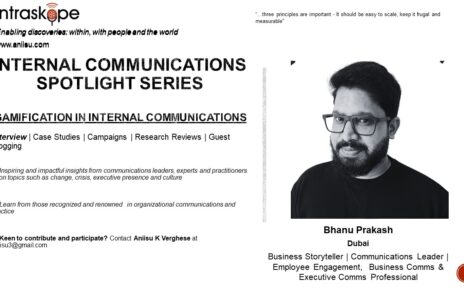Embarking on a contract role in employee communications can be both exciting and challenging. As a contract staffer, you play a vital role in keeping the communication wheels turning smoothly within an organization. In this blog, we’ll explore the key qualities that contracting employers look for and provide practical tips to ensure a successful stint in employee communications without getting bogged down in unnecessary politics.
What Employers Look For:
- Deep Understanding of the Requirement:
To hit the ground running, strive to grasp the intricacies of your role before you even start. A solid understanding of what’s expected will not only minimize the need for lengthy briefings but also showcase your commitment to delivering results.
- Background in the Role and Industry:
Your background in the field and familiarity with the industry is a valuable asset. It instils confidence in your ability to navigate the specific challenges of employee communications and helps you integrate seamlessly into the team.
- Passion for Getting Stuff Done:
Contract roles often demand a proactive approach. Employers appreciate individuals who are not just task-oriented but also show genuine enthusiasm for achieving goals and driving positive change.
- The ‘How’ of Getting Work Done Through and With People:
Effective communication is at the heart of employee communications. Being someone who can collaborate and navigate through various personalities will set you apart.
- Quick Integration and Non-Ambitious Approach:
The ability to fit in quickly is crucial. Moreover, a non-ambitious attitude, in the sense of not seeking to overshadow existing team members, fosters a collaborative work environment.
What to Avoid:
- Stay Clear of Judgement:
Avoid passing quick judgments on existing processes or systems. While it’s good to suggest improvements, timing and receptivity matter. Be observant and thoughtful in your recommendations.
- Overstepping Your Remit:
While it’s beneficial to propose solutions, it’s important to gauge the openness and receptivity of your team. Overstepping your role boundaries can sometimes hinder rather than help.
- Talking Down on Internal Systems:
Every organization has its own set of systems and processes. Instead of criticizing, focus on understanding and working within the established framework.
To-Do Checklist:
| Checklist | Details | Completion/Progress Check |
| Documentation | Ensure all paperwork is in order before starting. | [ ] |
| Signed Contract | Have a signed and completed contract for clear agreement. | [ ] |
| Timelines and Expectations | Agree on clear timelines and expectations for your role. | [ ] |
| Reporting Structures | Understand and clarify reporting structures. | [ ] |
| Swift and Clear Responses | Respond promptly with clear and concise communication. | [ ] |
| Key Channel Access | Ensure access to key communication channels. | [ ] |
| Focus on Task and Building Relationships | Balance between task-focused work and relationship-building. | [ ] |
| Understand the Culture | Take time to comprehend the organizational culture. | [ ] |
| Channel Control and Narrative | Identify those who control communication channels. | [ ] |
| Tone of Voice and Intranet Exploration | Familiarize yourself with the tone and intranet content. | [ ] |
| Contribute Creatively | Go beyond assigned tasks; contribute creative ideas. | [ ] |
Embarking on a contract role in employee communications requires a strategic blend of understanding, adaptability, and professionalism. By adhering to these tips and avoiding common pitfalls, you’ll not only thrive in your role but also contribute meaningfully to the communication landscape of the organization. Remember, success in contract work is not just about completing tasks but also about building relationships and leaving a positive, lasting impact.
#contracting #contractworker #gigworking #employeecomms #IC #Internalcomms #branding #culture #organizationalpolitics #internaldynamics #jobs #hiring #sydney #australia #apac #asean



